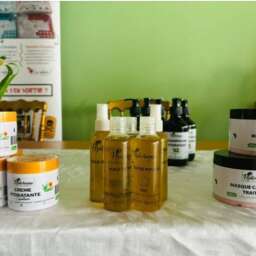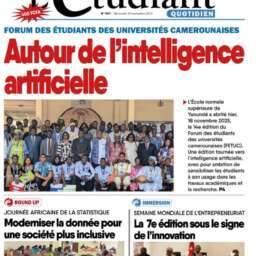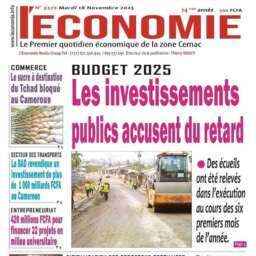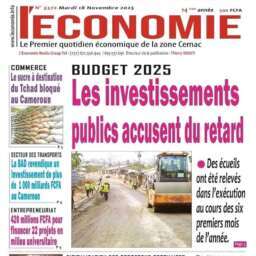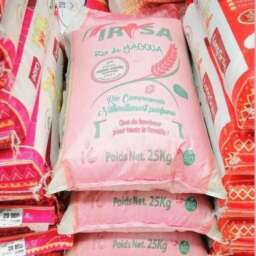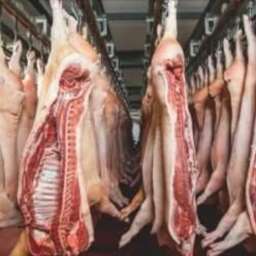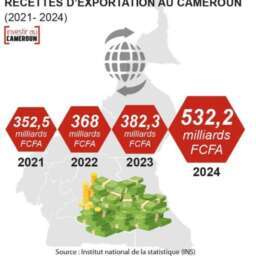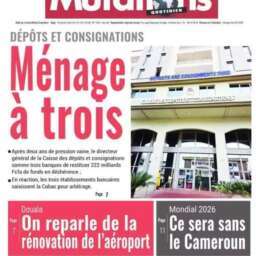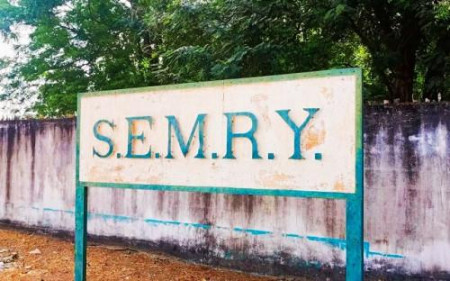(Business in Cameroon) – State-owned rice farming company, Semry, is facing a severe financial crisis that threatens its existence, according to a recent audit report by the Chamber of Accounts of the Supreme Court. The report, which covers the 2018-2021 period, reveals that the Yagoua Rice Farming Expansion and Modernization Company (Semry), a public entity designed for profit, is structurally operating at a deficit, unable to cover the actual costs of its agricultural services.
The audit paints a grim picture of Semry’s management, highlighting its inability to balance expenses and revenues despite consistent state support. “A company that fails to provide its clients with services whose production cost exceeds the selling price is inevitably doomed to disappear,” the Chamber of Accounts warned in its report.
Deepening Financial Losses
In 2021, for instance, Semry spent 2.8 billion CFA francs on agricultural services across its 10,348 hectares of land in Yagoua and Maga, in the Far North. These services encompass mechanized work, irrigation, maintenance of hydraulic networks and access roads, and the production of foundation seeds. The average cost for these services amounted to 276,547 CFA francs per hectare.
However, the “rice fee” charged to farmers is only 102,000 CFA francs per hectare. Even with an additional state subsidy of 40,588 CFA francs per hectare, Semry incurred a loss of 133,959 CFA francs per hectare. Scaled across 10,000 hectares, this translates to a net loss of 1.3 billion CFA francs. To mitigate these losses, the Chamber of Accounts has recommended discontinuing certain services, specifically plowing and direct parcel management.
Unsustainable Economic Model and Low Collection Rates
“Despite the support granted by the State, Semry is unable to generate a positive margin on its rice service activities, which are nonetheless its core business,” the audit noted.
Founded in 1971, Semry’s operations are primarily funded by rice fees, which are intended to cover equipment maintenance, fuel, and lubricant expenses. The current rate of 102,000 CFA francs per hectare, set in 2003, represented approximately half the real cost at that time and has not been adjusted since.
Compounding this pricing imbalance is a critically low collection rate. “In the specific case of the Maga sector, only 32% of rice farmers had actually paid the fees by the deadline of October 31, 2023, for the 2023/2024 dry season campaign,” Semry’s management lamented. “To date, more than 20% of them, despite having cultivated serviced plots, have still not paid their fees.”
To offset losses from poor fee recovery, the state provided Semry with a balancing subsidy of 1 billion CFA francs for the 2018 fiscal year (paid in 2019) and 300 million for 2020 (paid in 2021), totaling 1.4 billion CFA francs injected between 2018 and 2022. Both the Chamber of Accounts and Semry itself consider this aid insufficient and inconsistently disbursed.
Restructuring and Persistent Challenges
To prevent bankruptcy, the Chamber of Accounts has recommended a comprehensive restructuring of Semry’s operations, notably advocating for the elimination of high-cost services such as plowing and direct parcel management.
Although not explicitly detailed in the report, Semry’s annual payroll, estimated at 1.05 billion CFA francs, also contributes significantly to its financial woes, generating a structural deficit of 450 million CFA francs. This chronic budgetary imbalance has resulted in salary arrears, leading to an employee strike in February 2025 where workers demanded six months of unpaid wages. The strike disrupted the rice campaign and jeopardized the World Bank-funded Viva-Logone project.
Long before the recent audit, the Technical Rehabilitation Commission (CTR) had raised concerns about Semry’s financial health. Its 2022 report highlighted the absence of investment subsidies, which contributed to a decline in the company’s fixed assets.
Import Substitution Efforts Amidst Production Shortfalls
These challenges persist as Cameroon pursues its Integrated Import Substitution Plan, aimed at reducing its reliance on imported rice. National rice production remains significantly below demand. In 2022, Cameroon produced just 84,000 tons of rice against an estimated requirement of 736,565 tons, necessitating imports of 652,565 tons at a cost of 162.5 billion CFA francs.
In response to these difficulties, the government announced measures to strengthen Semry’s capacity in January 2025. Agriculture Minister Gabriel Mbairobe stated that ten tractors had been acquired, with four more to follow, and a third hulling line would be rehabilitated. These initiatives aim to modernize production tools and address past investment shortcomings.
Ludovic Amara



